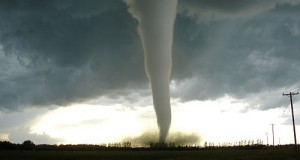When the time comes that the economy crashes or there is a general breakdown of society, the day-to-day economy will probably revert to one of bartering. This is a common occurrence in war zones, economic collapses, and other desperate times when money loses its value.
Money is merely a symbol for value. It’s only valuable because everyone believes it is. As long as everything keeps going normally, money will be a valuable thing to have. But, when things fall apart, that money may not be seen as being valuable. You can’t eat money, it’s kind of hard to clothe yourself with it, and building shelter with it would take an awful lot of one-dollar bills.
Normally, we trade money for those things that we need. But when people can’t use the money, they have a hard time seeing any reason to accept it. In a post-crisis recovery time, when people can’t go to the store and spend the money they have, they won’t be all that interested in getting more money; they’ll be much more interested in keeping what they have or trading it for something else that they can use. That’s when bartering will once again become the norm.
Many prepping experts recommend stockpiling goods which you can use as trade goods when those times come and people are bartering for the essentials of survival. That’s good advice. If you have items to barter, which people want, they’re likely to give you something of value to you in exchange for it.
There will always be things that you need in a post-disaster situation. I don’t care how good you are at stockpiling, there will be things that you don’t think of, things that you use up faster than you expect to and things that you didn’t stockpile because you weren’t expecting to need them. Even if you don’t need any goods yourself, you might need some physical help to get things done. Having goods that you can trade for labor is just as valuable as having goods that you can trade for items you need.
When you’re trying to live off of what you can produce, you’ll be glad to get some help. Whether it’s taking care of your vegetable garden or cleaning out your fish pond, you’ll quickly find that there aren’t enough hours in the day. People who are out of work will gladly help you out if you are able to feed them.
Making the Best Trade
When it comes to the bartering itself, you need to keep in mind that you are dealing with desperate people. This isn’t going to be like haggling over a trade at the local flea market. The thought process of the people you’re going to be dealing with will be quite different than that of somebody hanging out at the flea market on Sunday afternoon.
Most of the people who are looking to barter in such a situation will be people looking for the things that they need to survive. While that may mean that they are looking for cigarettes and alcohol (in their minds, those will be necessities for survival), they will be no less desperate to get their booze and smokes than someone who is trying to feed their family.
New Survival Seed Bank™ Lets You Plant A Full Acre Crisis Garden!
You have to keep in mind that desperate people do irrational things. That can work to your benefit as well as work against you. On the benefit side, they may be willing to trade away things that they never would have thought of letting go before. At the same time, their desperation may cause them to be short-tempered and quick to attack if they feel that you are taking advantage of them. To avoid problems, you must do all your trades with the utmost of caution.
Ideally, you want them to walk away from the deal feeling as if you were fair towards them. More than anything, that means that they feel that you gave them good value for what they gave you. This can be tricky, especially when basic supplies, like foodstuffs, skyrocket in value due to shortages.
The easiest way to make them feel as if you’ve been fair to them is to work out a deal, and then give them a little extra. Let’s say you’re trading food for jewelry. Your “sell price” will be based upon the scarcity of those food items. On the other hand, the “buy price” for gold will be rather low, as it won’t be able to help them survive. So, you work out a deal based upon the economy at that moment, which they may have trouble understanding. Then, you throw in some candy for their kids, so that they feel like you are trying to be fair with them. Those little gestures could make the difference between customers coming back to trade for more or coming back to shoot you and steal what you have.
Security Issues when Bartering with Desperate People
The biggest problem with bartering in the aftermath of a crisis is trying to keep people from getting the idea that it would be easier to shoot you and steal what you have, than it is to make a deal with you. Remember, these people may be feeling desperate, so they are somewhat unpredictable. You always have to keep your self-preservation in mind.
To that end, you never want to let people get the idea that you have a lot of trade goods stockpiled. If they think that you are the local version of Fort Knox, it may just be enough to motivate them to figure out how to rob the bank. The next thing you know, they’ll be showing up with all their buddies, all of who have itchy trigger fingers.
As much as possible, you want to conduct your “business” away from home. If you are bartering from your front lawn, people will be able to see that you are prepared, possibly giving them some wrong ideas. In many past disasters, public places like plazas became trading grounds for people to congregate. If you are doing your trading there, you’ll look just like everyone else.
Whatever you do, don’t show up with a truckload of trade goods. That’ll make you look like a potential target faster than painting a bulls-eye on your chest. Take a little at a time. When you sell out, leave for the day. Then you can go back another day to sell some more.
While you are going with peaceful intent, always go prepared for those who don’t have the same intent. There will always be some who decide that they have a right to take what anyone else has. If you are unarmed, you might look like an easy person to steal from. Being armed sends the message that you aren’t someone to mess with.
Taking that one step further, you’re better off if you can take someone else with you to your business location. You don’t want to leave your home unguarded by doing this, so make sure that you leave enough people behind to guard your home.
Your guard shouldn’t be with you, but separate. Have them sit or stand about 30 feet away, preferably in a location where nobody can come up behind them, while at the same time they’ll be able to box in anyone who tries to confront you. That increases the chances of ending any confrontation without violence, while ensuring that the deck is stacked in your favor if things do end up becoming violent.
 Off The Grid News Better Ideas For Off The Grid Living
Off The Grid News Better Ideas For Off The Grid Living





